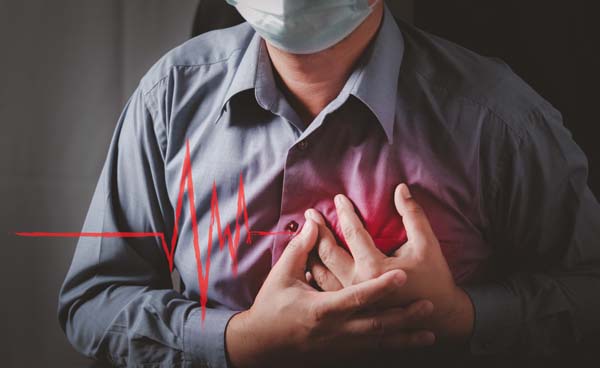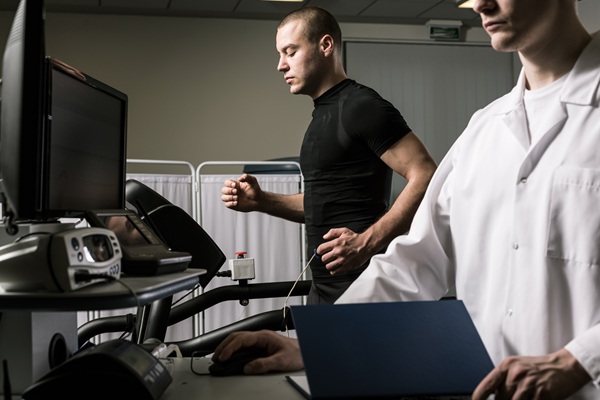Four Tips For Reducing Your Cardiovascular Disease Risk

Cardiovascular disease refers to a number of heart and artery conditions. The term often sparks fear in most people; however, with the help of a cardiologist, optimal health can be maintained and achieved to reduce the risk of heart problems. Keep reading to learn about ways to avoid cardiovascular diseases.
Reduce the risk of cardiovascular disease
Below are four tips that should be carefully considered when trying to lower the chances that cardiovascular disease will develop. These tips come straight from a cardiologist who is on the front lines of heart problems.
1. Eat a healthy diet
Diet is the number one factor in reducing disease. Individuals who eat a poor diet are much more likely to develop and suffer from cardiovascular diseases. An obese or overweight person will likely have clogged arteries, which leads to serious problems. However, with a healthy diet, this risk becomes lower.
A healthy diet includes one that is rich in vegetables and fruits. Additionally, lean protein is important, with a limit on red meat as over-consumption can cause problems with health. Aside from the actual foods that are consumed, cardiologists recommend a diet full of water, vitamin C, and multi-vitamins, as these all ensure good overall health.
2. Exercise regularly
Exercise is key in order to avoid cardiovascular disease. While it is not required to run on the treadmill or lift weights every day, physical activity of some sort is highly recommended. Physical activity keeps the body in good shape, which is necessary in order to keep the heart and arteries healthy. Cardiologists and doctors recommend at least 30 minutes of physical activity per day.
3. No smoking
Smoking anything is extremely dangerous for the body; however, tobacco products in particular can lead to the development of cardiovascular disease. The lungs are an obvious culprit of the nicotine that makes up products like cigarettes, but what many fail to realize is that the heart plays a role in the lung's function too. When the lungs are unhealthy, the heart is also likely to suffer. Additionally, the nicotine that is inhaled into the body will build up in the arteries, causing clots to form. Over time, cardiovascular disease may develop.
4. Limit alcohol consumption
While alcohol is not said to be bad for the body, over-consumption and excessive amounts of it can actually do serious damage. Aside from the liver, the heart can also be poorly affected by alcohol consumption. It is recommended to limit alcohol intake, if not completely eliminate it, in order to reduce the risk of cardiovascular disease.
Find out more from a cardiologist
A cardiologist is a great resource to utilize when looking to lower the chances that a heart problem will develop. Individuals who fear that they are at risk should consult with a cardiologist in order to undergo an evaluation. Additionally, questions or concerns can be addressed. Reach out today to learn more about cardiovascular disease.
Request an appointment here: https://boyntonbeach.floridapremiercardio.com or call Florida Premier Cardiology at (561) 229-1411 for an appointment in our Boynton Beach office.
Check out what others are saying about our services on Yelp: Read our Yelp reviews.
Recent Posts
According to the Centers for Disease Control and Prevention, heart disease is the leading cause of death for adults in the United States. Therefore seeking chest pain treatment is crucial, especially for those at high risk for heart disease. However, chest pain can result from various health issues, so how does one know when it…
A cardiac stress test is a diagnostic tool to evaluate how well the heart performs under physical stress. Cardiologists use this test to detect underlying cardiovascular conditions, monitor treatment progress, or assess the risk of future heart complications. Cardiac stress tests are essential in the early detection and management of heart disease.A cardiac stress test…
Peripheral arterial disease affects blood flow in the arteries, most commonly in the legs. It develops due to plaque buildup in the arteries that causes them to narrow and restrict circulation, possibly leading to discomfort, difficulty walking, and other serious complications. Recognizing the symptoms early and exploring treatment options can help improve the quality of…
Receiving cardiovascular treatment is a critical step in managing heart health, but recovery and long-term are equally vital to ensure long-term wellness. Whether the treatment involves medication management, interventional procedures, or surgery, maintaining a relationship with the cardiologist and following their recovery guidelines is crucial. A structured follow-up plan allows patients to maintain the benefits…


